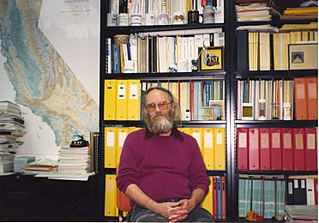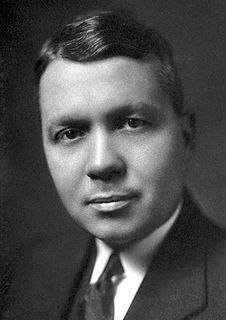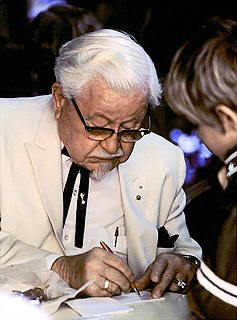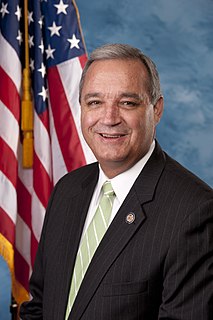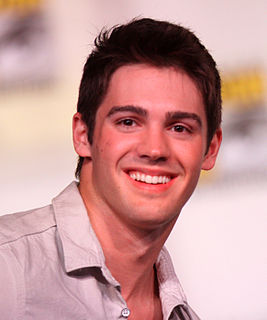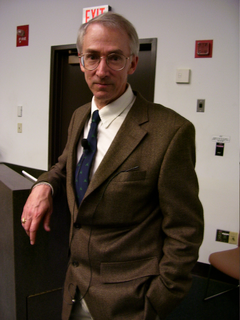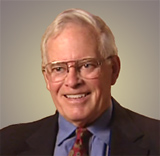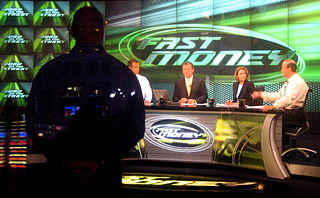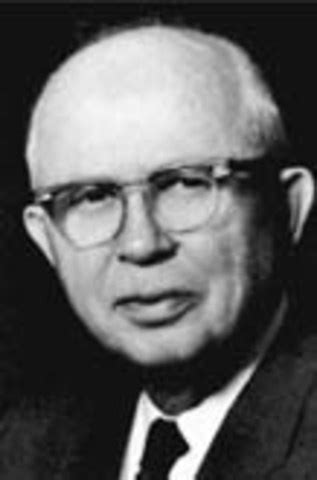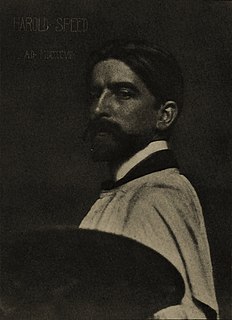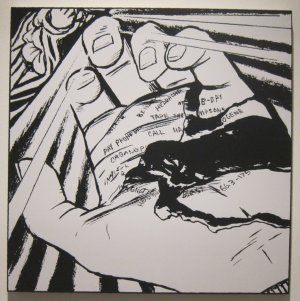Top 767 Article Quotes & Sayings - Page 11
Explore popular Article quotes.
Last updated on April 20, 2025.
I've always been fascinated, obsessed even, with books and TV shows about unsolved murders, cold cases, forensic science, mysteries, and so on. Many times when I get inspiration for my work, it's from something in one of these books or TV shows, or perhaps some newspaper article about a specific case.
We've done price elasticity studies, and the answer is always that we should raise prices. We don't do that, because we believe -- and we have to take this as an article of faith -- that by keeping our prices very, very low, we earn trust with customers over time, and that that actually does maximize free cash flow over the long term.
It's not fair that our name can be used in any newspaper, any article connected with anything, and we can't really fight about it. It's like any newspaper that might take a picture of you, bad or good, and sometimes they're awful pictures, and they can use them without your approval and you can't do anything about it.
Bob Dylan's 'Blowin' In the Wind' was written into the script of 'Article 15.' It was the only song I wanted in my film. It encapsulates the spirit of exploration and salvation that my hero Ayushmann Khurrana goes through. I love the song's lyrics, especially 'How many roads must a man walk down before you call him a man? '
It's really easy for someone to say no one should have guns when they're guarded by people with MP-5s. It's a little bit different. I'm always mentioned in that article as well because I'm a staunch believer in the Second Amendment. I shoot virtually every weekend. I'm a big outdoorsman. I believe in all those traditions. And I believe it's important for people to be able to defend themselves.
You know, NATO as a military alliance has something called Article 5, and basically it says this: An attack on one is an attack on all. And you know the only time it's ever been invoked? After 9/11, when the 28 nations of NATO said that they would go to Afghanistan with us to fight terrorism, something that they still are doing by our side.
Couldn't we end this interview with what I really want to say? That what the world really needs is a real feeling of kinship -- everybody: stars, laborers, Negroes, Jews, Arabs. We are all brothers. If we could end this article saying just that, we'd get down to what we should all be talking about. Please don't make me a joke. End the interview with what I believe.
People review my comic books. People review every article I write - 'The Atlantic' even publishes them. A great deal of the critique of 'Between the World and Me' was from a feminist perspective. bell hooks pushed back, among others. Some of that has value. Some of it does not. I try my best to separate the wheat from the chaff.
I picked up an issue of Cosmopolitan the other day that had tips for job interviews, because I was like, 'I need to get better at interviews.' The article was basically about how to get someone not to hate you in 20 minutes. Every single thing they told you not to do, I was like, 'I do that every day.'
I think they called me the closest thing to a God of the Internet. But at the end, that article wasn't very complimentary, because the author suggested that I wasn't doing a very good job, and that I ought to be replaced by a "professional." Of course, there isn't any "God of the Internet." The Internet works because a lot of people cooperate to do things together.
I believe the American people are more concerned with a man's views and abilities than with the church to which he belongs. I believe the founding fathers meant it when they provided in Article VI of the Constitution that there should be no religious test for public office. And I believe that the American people mean to adhere to those principles today.
I would say most people assume that I'm not very smart or educated or earnest, because I have this image that I'm sort of narcissistic, chasing attention, and wanting people to like me. It makes me laugh because I've done plenty of interviews and when you read the article from beginning to end you can see that I'm not your typical music video model.
The Deceiver can magnify a little sin for the purpose of causing one to worry, torture, and kill oneself with it. This is why a Christian should learn not to let anyone easily create an evil conscience in him. Rather let him say, "This error and this failing pass away with my other imperfections and sins, which I must include in the article of faith: I believe in the forgiveness of sins.
It's very hard, I think, for critics to write positive reviews, because there's not that much to say about something you like. You can kind of say 'I really like that band' and then if you're forced to fill up the rest of an article, you've got to start saying heady things. It's much easier to say negative things in a review.
Our guys working this area for a living all believe Chalabi and all those guys in their Bond Street suits are charlatans. To take them for a source of anything except a fantasy trip would be a real stretch. But it's an article of faith among those with no military experience that the Iraqi military is low-hanging fruit.
Fifteen minutes of fame doesn't make a career. An article in a magazine, newspaper, interview on television or multiple print ads may stroke your ego, but nothing much else. An artist's career is a lifetime venture. Just because an artist is on top doesn't mean they are sheltered from a crash. As has been stated, the higher you climb, the harder you fall.
All of us who study the origin of life find that the more we look into it, the more we feel it is too complex to have evolved anywhere. We all believe as an article of faith that life evolved from dead matter on this planet. It is just that life's complexity is so great, it is hard for us to imagine that it did.
I've gotten to a place where I'm better at curbing your ego, which usually happens when you're feeling super small and scared about whatever you're seeing, and you want to go read, 'Oh, I hear there's a really good article about me.' I've gotten better about knowing that's not going to end well, usually.
In 1968, 'Liberty Magazine' had an article about George Wallace in which he stated he would suggest me as a possible vice-presidential candidate, along with other choices such as 'Happy' Chandler and General Curtis LeMay. However, I am not interested in any political office in the United States or anywhere, now or back in 1968.
I was in a very deep state of shock after that. I had raised my horse since he was six months old and he was more like a child to me, so I took it very hard. They never caught who did it and the stable did a great job of covering facts up so it couldn't be proved that it was the direct result of the article, but the coincidence was striking.
One person reads the book, and cannot help telling a friend. That is vastly superior to any kind of advertisement, or clever magazine article. That is also the great power of the internet, where people share their opinions without the annoying screen of the media, and so much of the presence of my books has come from the Internet. It's a new era, a new form of war, and I embrace it.
I'm optimistic, though. Now, with the Arab Spring, I think that people in the region are beginning to overturn some of these clichés, and Western editors are starting to catch up. We're seeing some exceptions to the stereotypes, like Elizabeth Rubin's great piecein Newsweek, "The Feminists in the Middle of Tahrir Square." But an article like that shouldn't be the exception. It should be the rule.
In 1977, when I started my first job at the Federal Reserve Board as a staff economist in the Division of International Finance, it was an article of faith in central banking that secrecy about monetary policy decisions was the best policy: Central banks, as a rule, did not discuss these decisions, let alone their future policy intentions.
I want to play Nightwing real bad. I worked with [Arrow creator] Greg Berlanti a while ago on a show called Everwood and jokingly I tweeted him saying, 'Hey, let me come play Nightwing for a couple episodes.' And somebody wrote an article about it, so I was like, let's make it happen, but I haven't heard anything about it yet.
One reason that a truth and reconciliation process is needed for group selection is to return to the simplicity of the original problem and Darwin’s solution. As Ed Wilson and I put it in our recent review article titled “Rethinking the Theoretical Foundation of Sociobiology“: Selfishness beats altruism within groups. Altruistic groups beat selfish groups. Everything else is commentary.
In 1986, Tanton published an article in which he argued: `To govern is to populate ... Will the present majority peaceably hand over its political power to a group that is simply more fertile? ... As Whites see their power and control over their lives declining, will they simply go quietly into the night? Or will there be an explosion?'
How deep a wound to morals and social purity has that accursed article of the celibacy of the clergy been! Even the best and most enlightened men in Romanist countries attach a notion of impurity to the marriage of a clergyman. And can such a feeling be without its effect on the estimation of the wedded life in general? Impossible! and the morals of both sexes in Spain, Italy, France, and. prove it abundantly.
When I was 15 years old I read an article about Ivan Boesky, the well-known takeover trader - turned out years later it was all on inside information! But before that came to light he was very successful, very flamboyant. And I thought, "This is what I want to do". So I'm 15 years old, I decide I'm going to Wall Street.
A World Parliamentary Assembly functioning outside the United Nations, or a United Nations Parliamentary Assembly set up as a subsidiary body of the General Assembly pursuant to article 22 of the UN Charter, could start initially as a consultative body and gradually develop into a legislative assembly.
When I was 15 years old, I read an article about Ivan Boesky, the well-known takeover trader - turned out years later it was all on inside information! But before that came to light, he was very successful, very flamboyant. And I thought, 'This is what I want to do.' So I'm 15 years old, I decide I'm going to Wall Street.
According to an article on CNN.com, a new study says people who are bad kissers don't get laid. Where are you supposed to learn how to kiss? If you go to Catholic school, it's from your priest; in public school, you learn from your teacher; and some guys learn from their sisters... if their sister is Angelina Jolie.
I remember reading an article about this idea of borderline personality disorder, which is reality producers try the find people who are sort of flamboyantly anti-social in these certain ways, because what happens when you put them around other people is they drag everyone down to their level. I feel like I`m watching this disgraceful race to the bottom.
Every time I read anything, whether it be a book, a script, or anything, I automatically imagine myself as the boy in the plot. I don't know why. Seriously, anything. If I'm reading a magazine article or whatever, I picture myself as the kid people are talking about. It's really weird. I don't know why I do that.
What Malcolm X did not know is that back in 1962, a collaborator of Alex Haley, fellow named - a journalist named Alfred Balk had approached the F.B.I. regarding an article that he and Haley were writing together for The Saturday Evening Post, and the F.B.I. had an interest in castigating the Nation of Islam, and isolating it from the mainstream of Negro civil rights activity.
The lack of opportunity is ever the excuse of a weak, vacillating mind. Opportunities! Every life is full of them. Every newspaper article is an opportunity. Every client is an opportunity. Every sermon is an opportunity. Every business transaction is an opportunity, an opportunity to be polite, an opportunity to be manly, an opportunity to be honest, an opportunity to make friends.
Whereas formerly, before the advent of machinery, the commonest article you could pick up had a life and warmth which gave it individual interest, now everything is turned out to such a perfection of deadness that one is driven to pick up and collect, in sheer desperation, the commonest rubbish still surviving from the earlier periods.
I love 'Donnie Brasco' and 'Days of Thunder,' so after I did 'The Skulls,' I was like, 'I want to be either an undercover cop, or I want to race cars!' Universal came to me with a newspaper article about street racing in L.A., and I was like, 'Are you kidding me? I grew up doing that right off Peoria in Sun Valley.' They asked if I wanted to do it.
One thing I noticed over time is that if I got a bad review, usually the bad part of it was at the very end. I could tell that nobody read the whole review because they would just say, "It was great to see the review!" In a way, my brain shuts down at the end of an article. It doesn't really want to go to the end.
Under true peer-review...a panel of reviewers must accept a study before it can be published in a scientific journal. If the reviewers have objections the author must answer them or change the article to take reviewers' objections into account. Under the IPCC review process, the authors are at liberty to ignore criticisms.
Because the bill in reserving a certain parcel of land in the United States for the use of said Baptist Church comprises a principle and a precedent for the appropriation of funds of the United States for the use and support of religious societies, contrary to the article of the Constitution which declares that "Congress shall make no law respecting a religious establishment."
The suppression of unnecessary offices, of useless establishments and expenses enabled us to discontinue our internal taxes. These covering our land with officers, and opening our doors to their intrusions, had already begun that process of domiciliary vexation which, once entered, is scarcely to be restrained from reaching successively every article of produce and property.
I remember on page one of The New York Times the article about Fred Leuchter. The heading was "Can Capital Punishment Be Humane" and it was the story about an electric chair repairman and execution machine designer. And then buried in the back of the paper was the fact that Fred Leuchter had also been involved in holocaust denial.
I picked up an issue of 'Cosmopolitan' the other day that had tips for job interviews, because I was like, "I need to get better at interviews." The article was basically about how to get someone not to hate you in 20 minutes. Every single thing they told you not to do, I was like, "I do that every day."
It seems to me there is less meanness in atheism, by a good measure. It seems that the spirit of religious self-righteousness this article deplores is precisely the spirit in which it is written. Of course he's right about many things, one of them being the destructive potency of religious self-righteousness. (p. 146)














